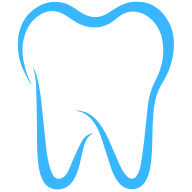Oral surgery can be a daunting experience, but the recovery doesn't have to be. With the right preparation and knowledge, you can ensure a smooth and comfortable healing process. This comprehensive guide aims to provide you with practical tips to aid your recovery after oral surgery. From understanding the importance of rest to knowing the right foods to eat, we've got you covered.
The Importance of Rest and Relaxation
Rest is the cornerstone of any recovery process. After oral surgery, your body needs time to heal and recuperate. It's essential to give yourself ample time to rest and avoid any strenuous activities that could potentially disrupt the healing process.
In the initial days following your surgery, make sure to get plenty of sleep. Your body heals most efficiently during periods of rest. Avoiding physical exertion isn't just about preventing discomfort; it's about giving your body the optimal conditions to mend itself.
It's also crucial to manage your stress levels during this period. High stress can hinder your recovery and even lead to complications. Engage in relaxing activities such as reading, listening to calming music, or practicing mindfulness exercises. Remember, a calm mind can significantly contribute to a smoother recovery.
Nourishing Your Body: The Right Foods to Eat
Your diet plays a significant role in your recovery. After oral surgery, your mouth might be sensitive, making it difficult to consume certain foods. It's important to choose foods that are soft, easy to chew, and packed with nutrients.
Start with liquids and soft foods like soups, smoothies, and mashed potatoes. As your mouth heals, you can gradually introduce semi-solid foods into your diet. Remember to avoid hot foods and drinks as they can cause discomfort and potentially disrupt the healing process.
Nutrition is key during this period. Opt for foods rich in vitamins A and C, which aid in wound healing. Foods like sweet potatoes, carrots, spinach, and citrus fruits are excellent choices. Protein-rich foods like eggs, tofu, and fish can also help speed up recovery.
Hydration and Oral Hygiene
Hydration is crucial for overall health and recovery. It aids in digestion, keeps your mouth moist, and can even help alleviate pain and swelling. Aim to drink at least eight glasses of water per day. Avoid alcohol, caffeine, and sugary drinks as they can dehydrate you and slow down the healing process.
Oral hygiene is equally important. While your mouth might be sensitive, it's essential to keep it clean to prevent infection. Rinse your mouth with warm salt water several times a day. This can help clean your mouth and provide relief from discomfort. Avoid vigorous rinsing as it can disrupt the healing process.
Medication and Pain Management
Pain management is a crucial aspect of recovery. Your doctor will likely prescribe pain medication to help manage discomfort after surgery. It's important to take this medication as directed.
Over-the-counter pain relievers can also be effective. However, always consult your doctor before taking any additional medication. Remember, pain is a normal part of the healing process, but excessive or prolonged pain should be reported to your doctor immediately.
Regular Follow-ups and Communication with Your Doctor
Regular follow-ups with your doctor are vital to ensure a smooth recovery. These appointments allow your doctor to monitor your progress, address any concerns, and adjust your treatment plan if necessary.
Communication with your doctor is key. Don't hesitate to ask questions or express concerns about your recovery. Remember, your doctor is there to help you through this process. Keeping an open line of communication can significantly contribute to a successful recovery.
Mental Health and Coping Strategies
It's important to acknowledge that recovery from oral surgery can be a challenging time emotionally. Feelings of anxiety or frustration are normal. It's crucial to take care of your mental health during this period.
Engage in activities that you enjoy and that can distract you from discomfort. Stay connected with friends and family, and don't hesitate to seek support if you're feeling overwhelmed. Remember, it's okay to ask for help. Your mental health is just as important as your physical recovery.
Embracing the Journey to Recovery
Recovery from oral surgery is a journey that requires patience, care, and understanding. By following these tips, you can navigate your path to recovery with confidence. Remember, every individual's recovery process is unique, so listen to your body and consult with your doctor regularly. With the right approach, you can ensure a smooth and successful recovery.

